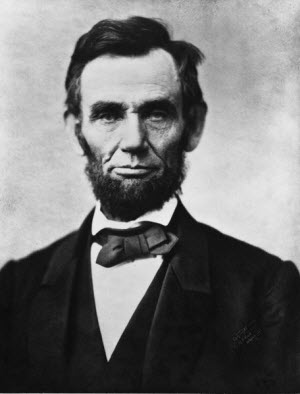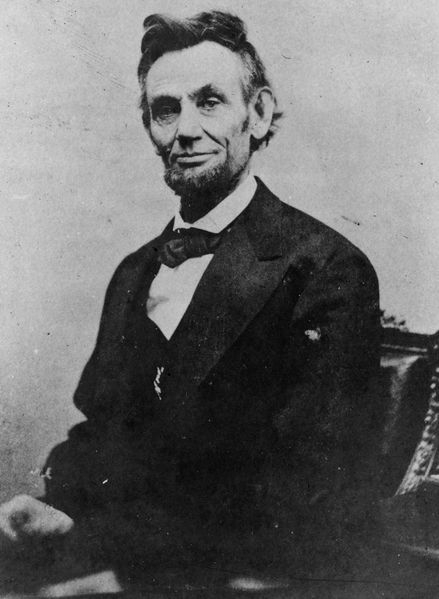Lincoln was compelled to contend with the results of the ill-judged zeal of politicians, who forced ahead his flatboat and rail-splitting record, with the homely surroundings of his earlier days, and thus, obscured for the time, the other fact that, always having the heart, he had long since acquired the manners of a true gentleman.
So, too, did he suffer from Eastern censors, who did not take those surroundings into account, and allowed nothing for his originality of character. One of these critics heard at Washington that Mr. Lincoln, in speaking at different times of some move or thing, said "it had petered out;" that some other one's plan "wouldn't gibe;" and being asked if the War and the cause of the Union were not a great care to him, replied:
"Yes, it is a heavy hog to hold."
The first two phrases are so familiar here in the West that they need no explanation. Of the last and more pioneer one it may be said that it had a special force, and was peculiarly Lincoln-like in the way applied by him.
In the early times in Illinois, those having hogs, did their own killing, assisted by their neighbors. Stripped of its hair, one held the carcass nearly perpendicular in the air, head down, while others put one point of the gambrel-bar through a slit in its hock, then over the string-pole, and the other point through the other hock, and so swung the animal clear of the ground. While all this was being done, it took a good man to "hold the hog," greasy, warmly moist, and weighing some two hundred pounds. And often those with the gambrel prolonged the strain, being provokingly slow, in hopes to make the holder drop his burden.
This latter thought is again expressed where President Lincoln, writing of the peace which he hoped would "come soon, to stay; and so come as to be worth the keeping in all future time," added that while there would "be some black men who can remember that with silent tongue and clenched teeth and steady eye, and well-poised bayonet, they have helped mankind on to this great consummation," he feared there would "be some white ones unable to forget that, with malignant heart and deceitful tongue, they had striven to hinder it."
He had two seemingly opposite elements little understood by strangers, and which those in more intimate relations with him find difficult to explain; an open, boyish tongue when in a happy mood, and with this a reserve of power, a force of thought that impressed itself without words on observers in his presence. With the cares of the nation on his mind, he became more meditative, and lost much of his lively ways remembered "back in Illinois."
Abraham Lincoln | Events | People | Abraham Lincoln Quotes |
Quotations About Abraham Lincoln | Abraham Lincoln Photo Gallery | Abraham Lincoln Timeline |
Privacy Policy | About Us | Site News | Site Map |
Anecdotes and Stories About Abraham Lincoln


